
What do you mean by an open AI hardware ecosystem?
In hardware design, intellectual properties (IPs) are often closed, posing a challenge for countries like India with abundant talent but limited access to expensive tools. Efforts such as Chip to Startup aim to democratise access, but they reach only a fraction of potential users, considering the vast student base and aspiring researchers. Therefore, the concept of openness entails two crucial aspects. First, openness provides access to free and open source tools, thus expanding accessibility beyond those restricted by costly proprietary software. Second, it pertains to making IPs open, enabling democratised development where individuals from diverse backgrounds can contribute, akin to the Linux open source movement. Embracing openness allows for an open innovation culture in hardware. Openness challenges the traditional closed nature of hardware IPs to create standardised solutions, such as a universally open USB standard, or other such technologies.
How will it affect business opportunities in the electronics hardware ecosystem?
It is only going to increase. So, keeping things open is going to reduce the barrier of entry. Currently, funding and access to tools and specific IPs are major barriers. With an open framework, access to these tools, IPs, and design methodologies becomes much easier, allowing more people to start. While many first-year students can easily use Python libraries to build applications, far fewer can build a chip or have access to the necessary resources.
What about AI tools which can help designers with entire chip designs?
True, but how do you validate it against a problem? If there is an IP owned by another entity and the designer tries to generate it, they will run into legal complications.
هذه القصة مأخوذة من طبعة September 2024 من Electronics For You.
ابدأ النسخة التجريبية المجانية من Magzter GOLD لمدة 7 أيام للوصول إلى آلاف القصص المتميزة المنسقة وأكثر من 9,000 مجلة وصحيفة.
بالفعل مشترك ? تسجيل الدخول
هذه القصة مأخوذة من طبعة September 2024 من Electronics For You.
ابدأ النسخة التجريبية المجانية من Magzter GOLD لمدة 7 أيام للوصول إلى آلاف القصص المتميزة المنسقة وأكثر من 9,000 مجلة وصحيفة.
بالفعل مشترك? تسجيل الدخول
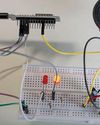
ESP32-Powered AUDIO-VISUAL SIREN
This sound alternator is designed to simulate the effects of a police siren, combining sound and light to create a dynamic audio-visual experience.
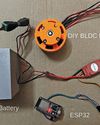
BLDC MOTOR With Web-Based Speed Control Using ESP32
Integrating wireless control into brushless direct current (BLDC) motor systems opens up exciting possibilities for applications such as remote-controlled cars, robots, and other innovative systems.
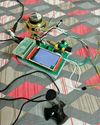
Pi Zero Portable BILINGUAL TRANSLATOR
This system is designed as a bilingual translator, leveraging the gTTS library to support multiple Indian languages, including English (en), Bengali (bn), Gujarati (gu), Hindi (hi), Kannada (kn), Malayalam (ml), Marathi (mr), Tamil (ta), Telugu (te), and Urdu (ur).
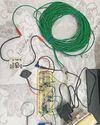
Op-Amp-Based VEHICLE THEFT DETECTOR
A simple, low-cost device can effectively alert homeowners or occupants if a parked vehicle is moved or tampered with.
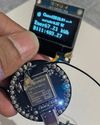
loT SMART METER With Dashboard
Energy meters in homes track electricity usage, enabling accurate billing by governments and providers.

Choose The Right Cloud Platform For Implementing loT PROTOCOLS
Working with loT protocols like MQTT, AMQP, and CoAP on cloud platforms is essential for developing scalable and efficient lol applications. The choice of the programming platform will depend on factors like project requirements, existing skills, and target devices. Leveraging the appropriate libraries and cloud services can enable seamless integration of lol devices with cloud-based applications.

Why TMR SENSORS Lead Next-Generation Design
TMR sensors are gaining traction in industries needing precision and power efficiency. What makes them the go-to choice for modern designs?
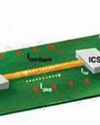
DESIGNING PCBs For EMI Management
Electromagnetic interference can derail your PCB’s performance. EMI management is not just a technical necessity but a hallmark of exceptional PCB design.

CUTTING COSTS, NOT CORNERS: Building Large Scale Applications With Open Source Software
Here are some strategies and best practices for leveraging open source to create enterprise-grade web and mobile applications without sacrificing quality or functionality.
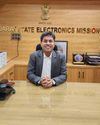
"We Are One Of India's Very Few State Bodies To Manage The Entire Lifecycle Of The Electronics EcosystemFrom Approvals To Subsidies."
What is Gujarat State Electronics Mission GSEM), and how is it attracting major investments in electronics manufacturing, particularly semiconductor manufacturing, to Gujarat? To delve deeper, Electronics For You’s Nijhum Rudra spoke with Manish Gurwani, the head of GSEM. Here is what he revealed...